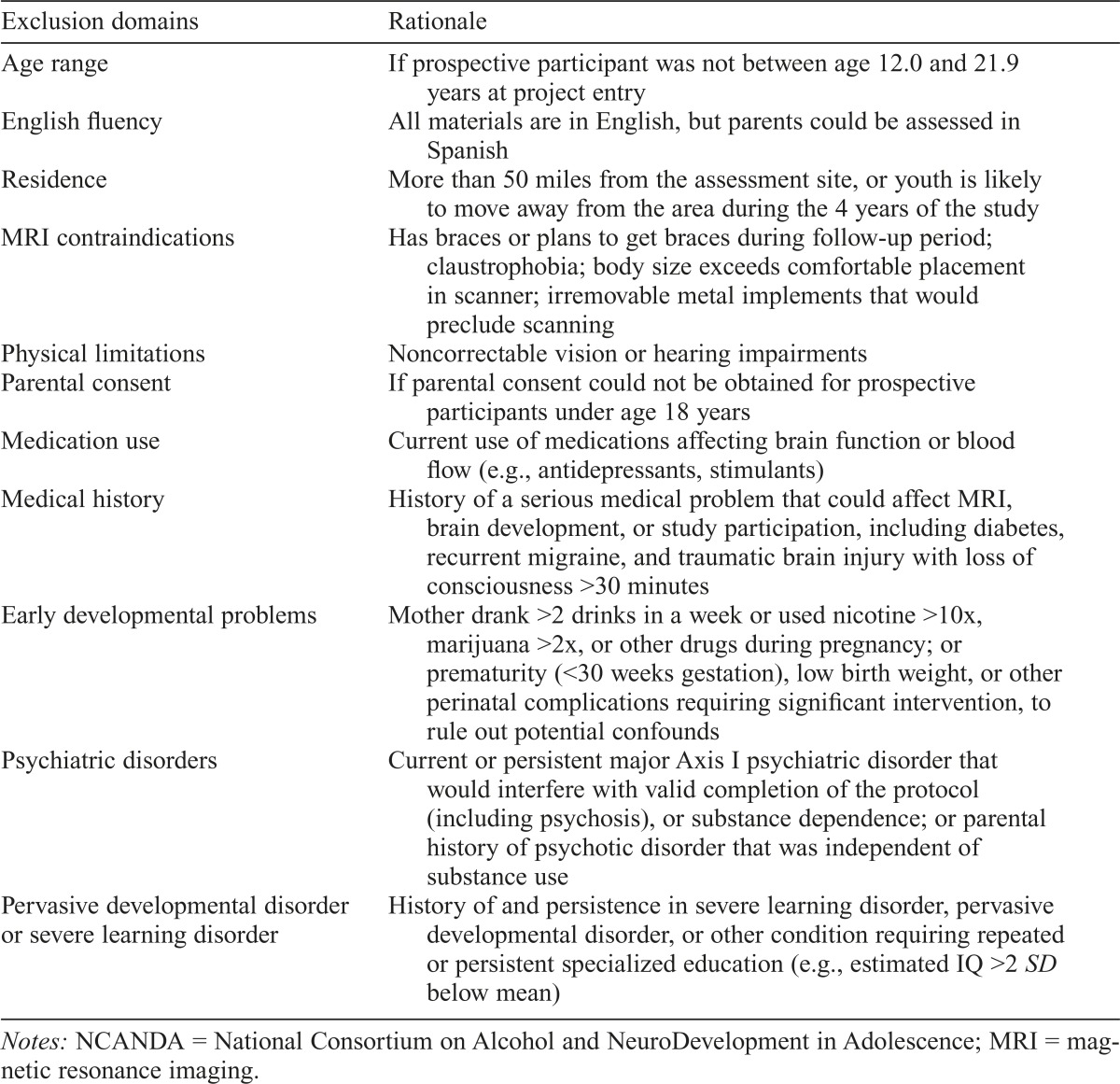Table 2.
Exclusionary criteria for NCANDA study participation at baseline
| Exclusion domains | Rationale |
| Age range | If prospective participant was not between age 12.0 and 21.9 years at project entry |
| English fluency | All materials are in English, but parents could be assessed in Spanish |
| Residence | More than 50 miles from the assessment site, or youth is likely to move away from the area during the 4 years of the study |
| MRI contraindications | Has braces or plans to get braces during follow-up period; claustrophobia; body size exceeds comfortable placement in scanner; irremovable metal implements that would preclude scanning |
| Physical limitations | Noncorrectable vision or hearing impairments |
| Parental consent | If parental consent could not be obtained for prospective participants under age 18 years |
| Medication use | Current use of medications affecting brain function or blood flow (e.g., antidepressants, stimulants) |
| Medical history | History of a serious medical problem that could affect MRI, brain development, or study participation, including diabetes, recurrent migraine, and traumatic brain injury with loss of consciousness >30 minutes |
| Early developmental problems | Mother drank >2 drinks in a week or used nicotine >10x, marijuana >2x, or other drugs during pregnancy; or prematurity (<30 weeks gestation), low birth weight, or other perinatal complications requiring significant intervention, to rule out potential confounds |
| Psychiatric disorders | Current or persistent major Axis I psychiatric disorder that would interfere with valid completion of the protocol (including psychosis), or substance dependence; or parental history of psychotic disorder that was independent of substance use |
| Pervasive developmental disorder or severe learning disorder | History of and persistence in severe learning disorder, pervasive developmental disorder, or other condition requiring repeated or persistent specialized education (e.g., estimated IQ >2 SD below mean) |
Notes: NCANDA = National Consortium on Alcohol and NeuroDevelopment in Adolescence; MRI = magnetic resonance imaging.

